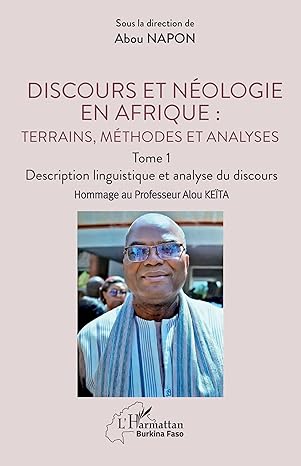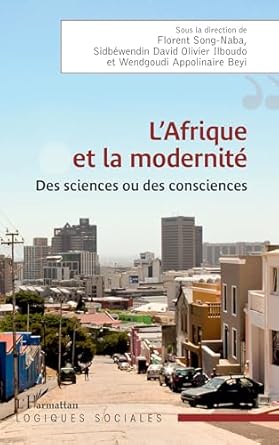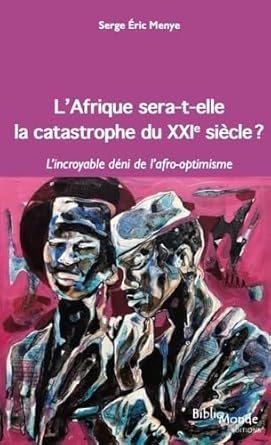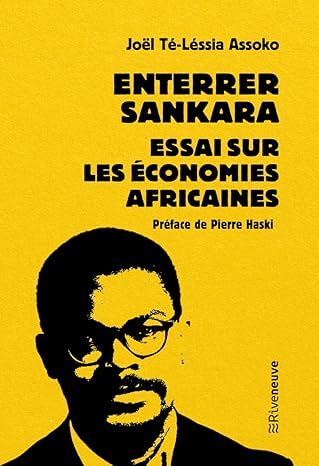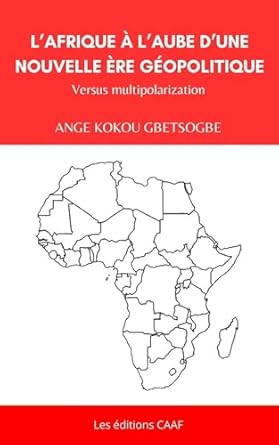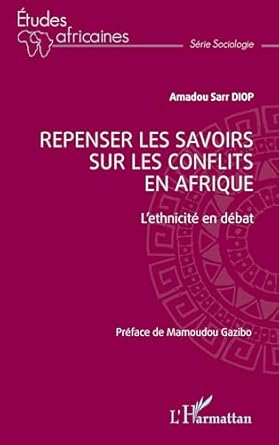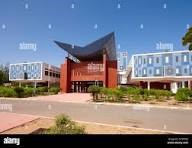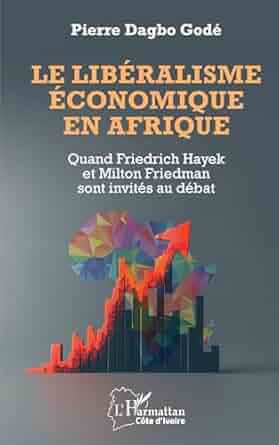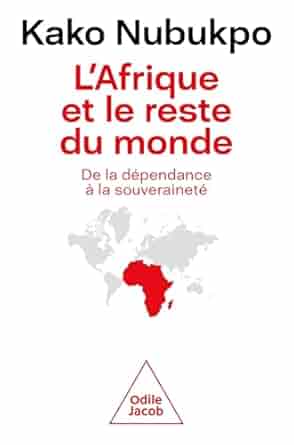This monumental and unprecedented tribute to the work of Professor Alou Keïta, sociologist and linguist, does not deal with economic and financial issues, but it nevertheless deserves the attention of the readers of our blog, because it testifies to the vitality of African research. The book presents the proceedings of a symposium organized in September 2024. It brings together 92 articles covering two themes: the analysis of African discourses; contemporary African literature and society. The first volume deals with the phonology, syntax, enunciation, lexicology and terminology of African languages. The authors endeavor to document the uses and dynamics of these many languages, which are both contextualized and insufficiently documented. They engage in an analysis of the discourses of African peoples, which cover narratives illustrating human actions influenced by different norms, values and social codes. The work highlights the plurality of African discursive practices, whether public or private, institutional or social. In an international context marked by tensions and more or less contradictory assertions of identity, the work of Alou Ketta, his colleagues and students illustrates the fertility of African research fields. The second volume focuses on language, a means of communication and a vehicle for learning. The articles analyze the relationship between language, society and education. The articles explore the relationship between language, society and education. Their authors endeavor to measure the influence of literature on language learning and the awakening of consciousness. Its practice is influenced, in Africa more than elsewhere, by the social status of the speakers. The authors show that language learning plays a central role in the education of the peoples of Africa, and in particular of its youth, who represent more than a third of its population. This tribute to a great African linguist is part of the current of thought opened by Saussure (the signifier and the signified), Chomsky (the innate character of language), Orwell (newspeak), Lacan (the language of the unconscious) and Damasio (the language of AI). Jean-Jacques Pluchart
F. SONG-NABA, S. David ILBOUDO et W. A. BEYI (dir), L’Afrique et la modernité. Des sciences ou des consciences, L’Harmattan, 2025.
This collective book, written by African academics, raises the issue of the adaptation of African economies and societies to the technological, economic and social changes of the contemporary world. They question the place that the African continent could – or should – occupy in relation to Western countries, Europe, China and other countries of the global south. The authors strive to ease the tension that has existed for more than half a century between the legacy of post-colonial traditions and the post-modern imperatives based on innovation, individualism and freedoms. They define modernity as “a historical construct aimed at freeing the individual from social and cultural constraints” and they question the ability of African populations to adapt to technical and social progress, through coordinated collective actions and institutional and structural reforms. They consider it imperative to think of “active African modernity” not as an imitation of Western models, but as a plural construction, combining science and conscience, specific to the realities of the continent. To answer their questions, the authors apply a mainly ethnomethodological approach, combining theoretical analyses and practical observations. Several chapters deserve careful reading. Mbembe conceives of “post-traditional modernity” as characterised by a loosening of social practices and a reconfiguration of space-time, a differentiation of social spheres and a better institutional reflexivity, according to a perspective opened by the British sociologist Gidden. W-A. Beyi and S-D. O. Ilboudo reflect on the appropriation of AI technologies, which constitutes one of the main technological, economic and ethical challenges for African countries. B. Yampa and N.C. Tiemtoré show the massive adherence of populations to digital currencies for practical uses. S. J. Ouédraogo is interested in the difficulty of transmitting knowledge about new technologies. He strives to “rethink the epistemology of science in Africa, considering African cultures as strategies for well-being”. K. Wiebke notes an opposition between the ethnological and anthropological approaches adopted in “African Studies“, while W. Keim notes the paradoxical dimensions in social science between the North and the South of Africa. N. Kokouvi-Edem and A. Kouméalo question the practices of collective action in Africa and, in particular, the management of environmentally friendly development projects. The work therefore reflects the expectations of the African elite and youth faced with a promising but uncertain future. Jean-Jacques Pluchart
Serge Eric MENYE, L’Afrique sera-t-elle la catastrophe du XXIe siècle ?, Bibliomonde, avril 2025, 150 pages
In an incisive essay with a deliberately provocative title, Serge Eric Menye questions the destiny of the African continent: Will Africa be the catastrophe of the 21st century? The book, short in volume but dense in its purpose, seeks to break a narrative that has dominated media and institutional discourse for more than fifteen years. We remember, in fact, the enthusiasm aroused in the early 2010s by a study by the consulting firm McKinsey, by the forecasts of the African Development Bank, and by an often fiercely optimistic economic press: this continent was then presented as the “next Eldorado”, the future Asian relay of global growth. However, Menye intends to demonstrate that this perspective is illusory. His diagnosis is clear: far from being the radiant future that was announced, Africa has become bogged down in a vicious cycle of poverty, poor governance, and conflict. Far from benefiting from decades of global growth and the massive decline in poverty observed elsewhere, the African continent has experienced a worsening of its difficulties. The author, however, does not limit himself to making this grim observation. By adopting a three-part structure, identifying the causes of endemic poverty, designating responsibilities, highlighting strengths and prospects, he proposes a dialectical reading: after the presentation of defects and failures, come the immense resources and positive examples that allow us to believe that another path remains possible. The first part of the book meticulously describes the obstacles that explain the rooting of poverty. Africa, explains Menye, has missed all the “trains” of global growth over the last fifty years: the globalization of trade, the digital revolution, the digitization of economies. While Asia has been able to take advantage of these dynamics to become a major player, Africa has remained on the sidelines. Its economies remain largely archaic, focused on the export of raw materials, unable to generate added value and create massive jobs. The case of Nigeria is revealing: the continent’s leading oil producer, it still imports 90% of its gasoline needs, due to a lack of refining infrastructure.This economic structure explains the persistent weakness of growth, too modest to absorb the demographic pressure. The African population, estimated at 1.5 billion today, is expected to reach 4.5 billion in 2100. This demographic shock dilutes all efforts: every investment in education, every progress in health, is neutralized by the constant increase in the number of potential beneficiaries.The figures put forward by the author are striking. In 1960, 10% of the world’s poor lived in Africa. In 2000, the proportion reached 60%. And according to projections, by 2030, 90% of people living in extreme poverty will be African. This historic reversal illustrates the continent’s failure to benefit from the global dynamics that have, on the whole, massively reduced poverty elsewhere.Added to this is a dramatic illiteracy, which still affects more than half of the population. Without education, no economic modernization is possible. The lack of infrastructure, roads, electricity, hospitals, schools, slows down any industrialization. The crushing debt is another burden. The sums spent on repayment deprive states of the means necessary to finance education, health, or critical infrastructure. Chronic indebtedness thus locks many African countries into a vicious circle: without investment, growth remains weak, and without growth, debt cannot be absorbed. To these structural handicaps is added the scourge of armed conflicts. For territories, resources, or identity rivalries, wars erupt with disconcerting regularity. These clashes leave economies bled dry, destroy scarce infrastructure, cause massive population displacements, and exacerbate food crises. The author cites a frightening figure: since 1990, these conflicts have cost the continent about 300 billion dollars. However, no one can build economic activity without the indispensable confidence provided by security and civil peace. Endemic corruption completes this picture. It affects all spheres of society and costs about 25% of the wealth produced each year. In such contexts, foreign investment is scarce, entrepreneurship is withering and the informal economy is proliferating. This informal sector, which is the majority, is a real poverty trap: low wages, lack of social protection, non-existent taxation, illegal or dangerous activities for health. It is on this soil that mafias, arms and drug trafficking, counterfeit medicines (responsible for nearly half a million deaths each year according to the UN), and the financing of terrorism thrive.The political situation is hardly more reassuring. In many countries, regimes are authoritarian, institutions are weak, and elites are predatory. Power, often monopolized by dynasties, is not based on merit or competence. Corruption, cronyism, and massive embezzlement of public money widen the gap between leaders and populations. Some exceptions exist, however: Botswana, Ghana, Senegal, Namibia, Somaliland, and Rwanda have each, in their own way, succeeded in establishing a more stable and democratic governance. But these examples remain in the minority and their effects, although real, are still limited on the continent. II. Responsibilities for the African disaster In the second part, Serge Eric Menye lists those responsible for this situation. He goes beyond the simplistic explanations that attribute all of Africa’s difficulties to colonization or slavery. Certainly, these phenomena have deeply marked the continent, but they are not enough to explain the current inability to develop. The real difference, he insists, lies in governance.The generation gap is huge between a young population, the youngest in the world with a median age of less than twenty years, and older leaders, often in power for decades. The latter conceive of power as a “jackpot”, an opportunity for unlimited personal enrichment. The misappropriations and personal fortunes of the leaders, invested in luxury goods abroad, illustrate this drift. Between 2000 and 2015, no less than 836 billion dollars left Africa illegally, more than the total stock of external debt in 2018 (770 billion). But the African elites are not the only ones responsible. External powers, including France, the United States, Russia, Turkey and China, as well as international institutions, play a role deemed “toxic”. Their interventions are not neutral. They sometimes fuel conflicts, sometimes support corrupt regimes, and exploit resources. Moreover, international aid, often praised,
Joel Té-Léssia ASSOKO, Enterrer Sankara. Essai sur les économies africaines, Eds Riveneuve, 2025, 151 pages. Préface de Pierre Haski.
J T-L. Assoko’s book does not meet the selection criteria of the Turgot club, neither in substance nor in form. In a style worthy of Gongora, he engages in a radical critique of the policies pursued by certain African states, mainly French-speaking. But his observations and proposals respond to questions shared by the majority of young Africans. As the title of his book suggests, the author denounces certain ideologies and practices applied (the “leaps into the absurd”) by many African countries, taking as an example Burkina Faso chaired by Thomas Sankara, whose policy was aligned with that of North Korea.But the interest of the book lies mainly in the analysis of the economic handicaps of the former French colonies (united in the CFA Franc zone), whose economic growth since the 1960s would have been generally lower than that of the former countries of East Africa and South Africa, under English-speaking influence. The author attributes this difference to the rejection by the countries of the “former” Françafrique, which inherited the “sad tropisms” of the French Republic, which he considers both “over-administered and under-governed” and marked by “the spirit of Paris”, preferring ideologies to concrete projects. The comparative analysis of the revolutionary speeches of African leaders and the reports of international institutions is enlightening in this respect.The strong presence of international investors – especially French – also maintains a new form of pan-Africanism, which combines an anti-Western attrition and a pro-Russian and Chinese attraction. The author also denounces European “environmentalism” (the “green rage”) which imposes unattainable environmental standards on Africa, favors short circuits and thus deprives Africa of outlets to the Old Continent and of financing projects in favor of the exploitation of African resources. Joel Té-Léssia ASSOKO (Sciences Po Paris and Dauphine) is responsible for the economic pages of Jeune Afrique. Pierre HASKI is president of the Reporters Without Borders movement. J-J. Pluchart
Ange Kokou GBETSOGBE, l’Afrique à l’aube d’une nouvelle ère géopolitique, Les éditions CAAF, 2025, 319 pages
The author maps the convergent and divergent dynamics driving African nation-states, which strive to settle the legacy of colonization, consolidate their access to independence, gain full sovereignty, and influence the balance of power between continents. But their efforts are faced with multiple obstacles, ethnic, economic and geopolitical. Africa is the richest of all continents, both in terms of its raw material resources, its youth, its ethnic groups (more than 2000), its social structures and its cultures. That is why it has always aroused the envy of Western countries and, more recently, of China. Today, it is causing more and more rivalries between these countries. Most African states are trying to free themselves from neo-colonialism, sometimes through violence, to fall back into new forms of dependence, especially from China and Russia, but also from the former colonizing countries. African governments are looking for new types of alliances, cooperation and investment, based on more balanced exchanges. Their priorities are most often the development of education and infrastructure. But still too many states are victims of political instability, precarious institutions, social inequalities, and lack of funding. Like most young African authors today (1), Ange Kokou GBETSOGBE wonders how to ensure more stable, inclusive, and transparent governance, better regional integration, and a stimulating dynamic, especially for young people. Ange Kokou GBETSOGBE is a Legal Consultant, a specialist in public business law, and president of the CAAF, which promotes the development of Africa. Jean-Jacques Puchart (1) See the works reviewed on clubturgot.com
Amadou Sarr DIOP, Repenser les savoirs sur les conflits en Afrique , Eds L’Harmattan , 2025, 226 pages.
The author engages in a critical and ambitious re-reading – or rather a “deconstruction” in the sense of Derrida and Elias – of the main discourses and narratives devoted to ethnic conflicts in Africa since the 1960s. He challenges both the concepts and the logic that he considers too anchored in the Western epistemology inherited from the colonization of African countries by European countries. He shows the complexity and diversity of the crises and wars that have opposed the countries, regions, and ethnic groups of Africa. He places them in their historical, social, and geopolitical contexts. He reveals some unknown distant origins. Economically, it reveals the importance of the struggles between governments (rarely democratic) but especially between local elites for the appropriation of rents from the exploitation of natural resources. He attributes responsibility for certain crises to Western (less and less European) and Asian (more and more Chinese) multinational groups. The main originality of the work lies in the scientific approach of the author, who strives to free himself from Western methodological protocols, based in particular on the principles and paradigms laid down by Karl Popper and Thomas Kuhn. He argues that these are not universal and timeless, but that they are specific to each civilization. It is therefore necessary to integrate regional particularities and post-colonial contingencies in the scientific approaches applied to African economic and social facts. He proposes to deconstruct their representations by multidisciplinary methodologies dominated by anthropology and combining philosophical, sociological, and economic approaches. Amadou Sarr Diop was particularly influenced by the work of sociologist Georges Balandier, a French university professor, who was director of several African studies centers and the author of the book Ambiguous Africa (1957). Georges Balandier is the initiator of the concept of “detour” by which it is necessary to “decolonize knowledge”. Amadou Sarr Diop, associate professor at the Cheikh Anta Diop University of Dakar, is director of the laboratory of the Interdisciplinary Research Group on Education and Knowledge attached to the ET.HO.S Doctoral School (Studies on Man and Society). He has published several books on the theme of Africa’s development. Jean-Jacques PLUCHART
Fatou DIOP, Mbaye Fall DIALLO et Marc BIDAN, Prospective universitaire Afrique -France , in L’enseignement supérieur en transition : propositions pour l’avenir, livre coordonné par Jean-Philippe DENIS, Aude DEVILLE et Olivier MEIER, eds GMS, 2024.
The authors trace the evolution of relations between French and African universities since decolonization. Initiated with Senegal in 1957, the cooperation dates back to the 1950s. It now extends to universities in Morocco, Tunisia, South Africa, Uganda, and Mozambique. Exchanges take place within the framework of Erasmus+ at the European level, but the most fertile projects are concluded directly between universities, within the framework of programs such as “Entreprendre en Afrique” and projects such as “DISCOM”. These initiatives adopt global approaches integrating collaborative research and educational innovation. They are mainly intended to promote the creation of enterprises by African youth in order to better exploit local resources and develop their skills in the trades sought by international investors. Another priority of the cooperation is to train Africans in specialties that contribute to the achievement of the Sustainable Development Goals (SDGs), including SDG 1 (“No poverty”), SDG 2 (“Zero hunger”), SDG 5 (Gender equality), SDG 8 (Decent work and economic growth), SDG 10 (Reduced inequalities and social inclusion) and SDG 13 (Climate action). Cooperation is thus put in place to help Africa achieve the objectives of local development plans, as in the case of Senegal, with the Plan Sénégal Émergent (PSE) which aims in its Axis 1 (the structural transformation of the economy and growth) and its Axis 2 (the improvement of human capital, social protection, and sustainable development). Cooperation is generally based on project management involving all stakeholders, adapted to the local context and governed by balanced and proactive governance. The authors observe that, despite the health, security, and economic crises, North-South cooperation is developing, particularly under the aegis of the Agence Universitaire de la Francophonie (AUF), whose objective is to promote training in higher education through apprenticeship and professional integration. The authors are teacher-researchers who have completed their studies in France and are engaged in research and teaching in African countries. Jean-Jacques Pluchart
Pierre Dagbo GODE, Le libéralisme économique en Afrique. Quand Friedrich Hayek et Milton friedman sont invités au débat, L’Harmattan, 245 pages.
Pierre Dagbo Godé presents an ambitious program of policy reform for African countries, based on the liberal theories of Friedrich Hayek (Austrian school) and Milton Friedman (Chicago school). He strives to adapt these theories to the structural and cultural peculiarities of African countries. Beyond the principles, he applies to present concrete cases of countries in a situation of success or failure. He notes that most of them had to free themselves after the Second World War, with more or less success, from colonization by European states, which have set up for more than two centuries “rentier economies” based on the exploitation of natural resources, especially for the benefit of local elites. The author advocates applying the principle of “laissez-faire” and limiting the roles of the State, both as “arbiter and strategist”, to the exercise of justice, respect for public safety, and the fight against social inequalities. Institutions must be stable and borders must be sufficiently open to promote trade between Africans and with third countries. Imports should not replace local production and exports should finance infrastructure and assist the most disadvantaged populations. States must also prohibit monopolies and promote competition between local and foreign companies. They must supervise the informal economy without eradicating it because it is the breeding ground for tomorrow’s SMEs/SMIs. They must therefore practice “smart protectionism”. They must avoid any centralization of power, authoritarian planning, excessive bureaucratization, endemic corruption, and arbitrary intervention in the markets. To support economic development, states must guide, in conjunction with foreign universities and NGOs, education and training in the most job-creating professions, such as computer science and artificial intelligence. Pierre Dagbo Godé cites Rwanda, Botswana, Zambia, Kenya, and Uganda as the most committed countries. The author also advocates for pan-African unions, better market integration, and more mobility of workers from one country to another. He analyzes the progress – which he considers still insufficient – of African banking and the Development Assistance Bank (ADB). He compares the actions of the AfCFTA (African Free Trade Area), the ECOWAS (West African Community), the SADC (Southern African Community) and the COMESA (East African Community). These associations have promoted trade by limiting tariff and non-tariff barriers. The book reflects the conviction of its author, according to which Africa, rich in its youth and its natural resources, can find in the principles of economic liberalism the keys to its future. Pierre Dagbo Godé is an Ivorian politician, and the author of several economic and political works. J-J. PLUCHART
Kako Nubukpo, L’Afrique et le reste du Monde, Odile Jacob (208 pages), publié le 23/10/2024.
Africa must emerge from its dyptych. The transition between a conquering Russia, an uninhibited and determined African youth, and a declining imperialist, marks an opportunity for Africa to free itself from the futuristic slogan and rediscover its ancient governance by dealing with the BRICS. The author suggests 4 facets to delegitimize African powers. In order to respond to ecological issues, the demands of peoples, political and institutional orientations, the author advocates environmental, popular, political sovereignty and the ethos of yesterday’s solidarities. He illustrates his audit with the case of ECOWAS, whose extinction is inevitable, if it does not revise the fundamentals of its sovereignty. “He defends the idea that Africa can emerge from dependence and become master of its destiny. He criticizes neoliberalism and the withdrawal of Pan-Africanism.” From dependence to sovereignty, what impact at the intra-African financial level and with one of the flagship countries of the EU and with two giants of the BRICS? With one, a need to turn away from an instrument of inertia of the African economies of the franc zone. With the other two, a legitimate choice to conquer monetary sovereignty. In order to allow Africa to be an actor in all the levers of the financial mechanisms of their country. The reader learns about the three options for a new African currency, its deployment, and its roadmap for its implementation. In conclusion, the author proposes two levers: neo-sovereignty, via the asymmetry of North-African trade relations, which must find pragmatic answers. And, neo-protectionism, sector by sector, which I invite you to discover by reading this visionary work. Kako Nubukpo, is an economist and director of the Sub-Saharan Africa Observatory of the Jean Jaurès Foundation. Chronique de Pona SAMNIK
Landing BLAYE, Les nouveaux défis du panafricanisme, L’Harmattan, l35 pages.
The book exposes the new hopes of African youth, which covers 40% of the continent’s population. It is written by the president of the Pan-African Movement of Leaders (MPL), which is represented in 47 countries in Africa and the African diaspora. The MPL is a political and cultural movement for the emancipation of Africans and African-Americans, respectful of democratic values and open to international cooperation. It was created in 1900 at the London conference by Sylvester Williams and Marcus Garvey. It accompanied the decolonization of African countries, especially after the 1958 referendum on membership in the French Community. It became known through the writings of Senghor, Césaire, and Diop, and the actions of the Black Lives Panthers. The author notes that Africa has experienced many vicissitudes since the post-war period that have compromised its unity despite the creation of the Organization of African Unity (OAU). The governments of the states have divided into two main movements, the “Casablanca bloc”, of rather ideological obedience, and the “Monrovia bloc” of rather economic tendency, which the MPL claims. In 2023, the latter took stock of its (uneven) action since 2013 and set an ambitious “Agenda 2063”. Its project aims primarily to avoid the “African brain drain” and to promote employment on the continent. It advocates the development of youth skills in technologies and the digital and computer economy (AI, robotics, blockchain, etc.), as well as in industries and services oriented towards sustainable development. The “2063 Agenda” includes a financial component. The author proposes to capture – through various financial instruments and financial and fiscal incentives – a fraction of the savings of African households, transfers from the diaspora (about $40 billion per year) and international investments, in order to develop education and the creation of companies (start-ups, platforms, consulting, etc.). The author analyzes AI applications that could be useful to African states in health, agriculture, education, defense, and security. Reading the book helps to shed light on the current debate on wokism and woke culture through concrete proposals, both economic and social in nature. Landing BLAYE is a teacher-researcher in geo-strategy and president of the MPL. He was a parliamentary assistant in Senegal. Note by Jean-Jacques Pluchart


